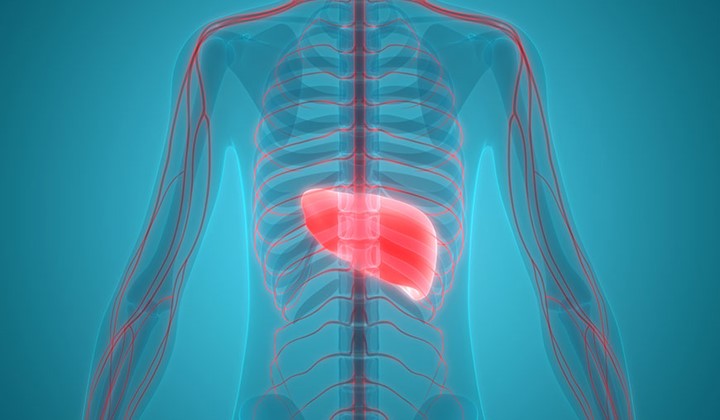Fructose malabsorption: When fructose is unhealthy
Every child knows that fruit is healthy. But in some circumstances, eating it can cause problems.In people with fructose malabsorption, the fructose contained in fruit and many other foodstuffs can lead to serious complaints. Also known as intestinal fructose intolerance, this food intolerance can trigger intestinal spasms and flatulence –and can even result in severe liver damage. In normal quantities, fructose does not usually cause the body any problems. The following sections describe exactly how the breakdown works.

What is fructose?
Fructose (also known as fruit sugar) is a natural form of sugar that is found mainly in fruits such as pome fruit and berries or in honey. Normal household sugar (saccharose) is also made up of 50 percent fructose and 50 percent glucose. As fructose has a very sweet taste and is inexpensive to process, it is often used in industrially manufactured foodstuffs such as ready meals, juices and many “light” (or “lite”) products. The breakdown is carried out almost entirely in the liver, where fructose is used for purposes including energy extraction.

What is the difference between fructose malabsorption and fructose intolerance?
The terms fructose malabsorption and fructose intolerance are often incorrectly used as synonyms. In actual fact, they are different metabolic disorders. Fructose malabsorption (also known as “intestinal fructose intolerance”)is a kind of food intolerance where the body is unable to absorb fructose due to a disrupted transportation system in the small intestine. This results in digestive problems such as flatulence or diarrhea, and even liver damagecan arise in the long term. Fructose malabsorption is not to be confused with the potentially life-threatening hereditary fructose intolerance, an inherited fructose metabolism disorder.

What is hereditary fructose intolerance?
Hereditary fructose intolerance is much less common than fructose malabsorption. This disease involves a genetic deficiency of the enzyme aldolase B. In patients with hereditary fructose intolerance, fructose can be absorbed via the intestine, but cannot be broken down properly in the liver. As a result, even small amounts of fructose can trigger severe health complications. Aldolase B is responsible for splitting fructose in the liver, kidneys and intestine into fragments.As this splitting does not take place in sufferers due to the enzyme deficiency, fructose 1-phosphate builds up in the intestine, liver and kidneys. This impairs glucose metabolism, which in turn leads to hypoglycemia and clotting disorders and can cause severe liver, kidney and intestinal damage.

What has fructose got to do with raised blood lipid levels (fatty liver)?
Essentially, every person – regardless of whether they suffer from fructose malabsorption – can ingest only a certain amount of fructose. Usually, the body has no problem breaking down normal amounts of fructose.However, if large amounts of fructose (more than 50 g per day) enter the body, this can also be unhealthy for people with no fructose intolerance: when storing energy, the liver produces triglycerides, which are deposited as depot fat, some in the tissue and some in the liver itself. If too much fructose is ingested, this can lead to raised blood lipid levels and even to non-alcoholic fatty liver disease (NAFLD). In the early 1970s, the US food industry began to replace cane sugar with high-fructose corn syrup (HFCS) on a large scale. Ever since, fructose has been found in candy, ready meals and in many low-calorie foods. Overall, pro capita consumption of fructose has risen by 20 percent in the last few decades, in parallel with obesity. NAFLD has also become much more prevalent, particularly in the USA, and is now the most widespread cause of chronic liver disease worldwide.

Sorbitol intolerance and fructose intolerance
Along with fructose, industrially produced, low-calorie foodstuffs often also contain sorbitol, which belongs to the group of sugar alcohols. Like fructose, sorbitol is a sugar substitute. With sorbitol intolerance too, the breakdown process in the small intestine is impaired in such a way that the sugar cannot be metabolized adequately, if at all. The body reacts with stomach cramps, flatulence or diarrhea. People who suffer from fructose malabsorption should also eliminate sorbitol from their diet entirely.

Causes of fructose malabsorption
Fructose malabsorption can either be hereditary or arise in the course of life. It is often caused by a very high fructose diet in which the body receives more fructose than it can process. However, the degree of intolerance is different in every person, and must be determined on a case-by-case basis.













